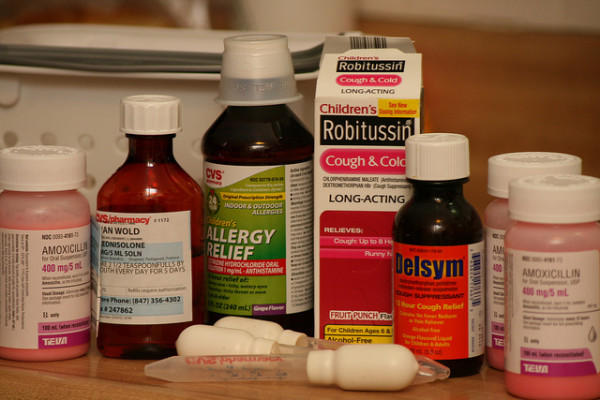Hydrogen peroxide is a commonly used antiseptic. As an oxidizing agent, it works against infectious microbes by disrupting their cellular components. While hydrogen peroxide is most commonly used as a wound disinfectant, many alternative uses are emerging, ranging from household cleaning to hair lightening. However, it is important to note that while these uses are recommended on various sites of the body, not all of them may be as effective or harmless as people say. For example, studies have shown that hydrogen peroxide is toxic if consumed in large quantities and is associated with seizures, difficulty breathing, and blood clots, which can become lodged in blood vessels and block blood flow. Some alternative uses for hydrogen peroxide that may require further investigation include toothache relief and cold treatment.
Image Source: Tetra Images
Toothaches are usually due to a microbial infection, in which the presence of microbes can cause inflammation and pain. One of the many suggested home remedies for this condition is rinsing with diluted hydrogen peroxide. This is believed to kill bacteria and relieve pain while a person is waiting for proper dental treatment. While use of hydrogen peroxide as a toothache reliever is acknowledged by some dental practitioners, it is also stated to be potentially unsafe due to the risk of ingestion. Additionally, some studies associate hydrogen peroxide rinses with tissue damage in the mouth, so it may be safer to use simple salt water.
Image Source: andresr
Another recommended use for hydrogen peroxide is for treating colds. Home remedy directions say to put about a capful of three percent hydrogen peroxide into the ear canal, wait about five to ten minutes, then drain the liquid out. This is thought to “cure” a cold if used early enough, because some upper respiratory infections can be contracted when pathogens enter through the ear canal. Though some studies discuss the possibility of skin damage with the use of hydrogen peroxide in the ear, no particular studies warn against this practice. Alternatively, no studies prove that hydrogen peroxide in the ears can cure a cold, so perhaps this treatment should be considered with skepticism.
Overall, the various medicinal uses of hydrogen peroxide could potentially have some efficacy, though users may risk accidental ingestion and tissue damage. While hydrogen peroxide may be effective as a basic antiseptic and household cleaner, it may not be suitable for more complicated medical problems. And remember, in the case of any severe medical condition, it is best to consult a physician for the best course of treatment.
Featured Image Source: 046/365 by anjanettew










